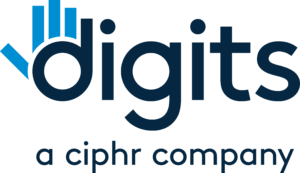How To Integrate Personalised Learning Into Your Learning Strategy
Back in digital learning’s primitive days, learning operated on a ‘one-size-fits-all’ approach. All colleagues would see the same learning materials, complete the same activities and ultimately ask the same question: 'Why is this relevant to me?'.
Going beyond simply branding your LMS, personalised learning is critical in creating that important User Experience, which helps to drive engagement by highlighting how learning is beneficial to them in their role.
An increasingly popular development in digital learning, personalised learning puts learners in control of their learning paths, whether it be identifying skills gaps and choosing learning modules accordingly or deciding when and where to learn with multi-device compatibility.
Here are 3 ways that you can create a more personalised learning experience with learning technology:
1. Recommended Learning
Like all of us, sometimes learners need a little prompting. Take Netflix; you want to watch a film, but you don’t know which one. So, looking at all the previous thrillers you’ve seen, it suggested you watch ‘Girl on the Train’, and you loved it.
Recommended learning works in a similar way. Often, learners know they need to develop their skills but are unsure of what areas to dedicate their time to so they end up spending time concentrating on well-developed skills, rather than establishing any new skills to push them in their careers.
Using digital learning technology, individuals can be recommended learning based on their job role or department. Showing learners courses that are relevant to them in their job role encourages interest by creating a personalised approach where people can see how the training will be applicable to them.
In addition, administrators can form quizzes around competencies and suggest courses to improve on any skill gaps based on the learner’s answers. For instance, if it was identified that an individual was struggling with communication skills, the LMS would recommend modules to help develop this area.
So, instead of learners completing generic modules that are only useful to certain individuals, learners can use their time productively to develop the skills that they need.
2. Just-In-Time Learning
Thanks to the internet, we now have access to a whole world of information at just the click of a button. Whenever we have questions, we turn to Google, and within seconds, we’ve got the answers we need, ultimately creating an on-demand culture of learning.
In this new era where knowledge is available in an instant moment of need, we start to see the same happening with our learning. Rather than learning being restricted to one location, we’ve progressed into a period of just-in-time learning, where learning is accessible anytime, anywhere, to satisfy an instant need for information.
Choosing an LMS with a mobile compatible app, provides access to learning activities on-the-go, catering for the individual needs and lifestyles of all learners. Despite most of us working 9-5 (no Dolly Parton pun intended), how many workers are at their desks every day of the week? Between visiting clients, events and external meetings, most of us are away from our desktops for significant periods of time.
With mobile learning, learners can complete learning activities whenever, wherever. For instance, a sales manager may want to brush up on their presentation skills on their way to deliver a sales pitch or an HR professional may wish to refresh their interview techniques on their commute into the office.
Giving learners the flexibility to do essential learning at their convenience will drive motivation, as it becomes less of a burden and instead becomes a task that can be easily managed alongside their busy schedules.
Whether you’ve got a team of night owls or early birds, with a mobile app, learners can do their assigned learning at a time and a place that suits them.
3. Relevant Homepages
Nowadays, when we log onto different streaming services or social media sites, we’re greeted with our own homepages that feature content tailored to our own preferences.
In the same way, someone’s Spotify account may show only rock songs, whereas another account might be mainly musical theatre tracks, learning homepages should vary between role, department or authority level.
By selecting an LMS with content management features, administrators can set different homepages for specific groups within the organisation, so learners only see relevant training materials.
Plus, each learner’s homepage can display information regarding their individual development, showing learning progress, current badges and upcoming bookings. This focuses entirely on each user and their specific learning pathway, giving them an accurate picture of their current development and what they need to do enhance their skills.
To Sum Up
Whilst years ago, we may have been content with generic learning aimed at entire organisations, now, personalised learning is perceived not only as a benefit to organisations and individuals, but it’s also an expectation.
If our social media, music services, and streaming sites are all personalised according to our preferences, then naturally your learners will expect the same from their learning platforms.
With the ability to recommend courses, learn on-the-go and customise portals using learning technology, learning no longer needs to be a universal experience.
So, rather than trying to avoid ‘taking things personally’, I think it’s about time we did.


